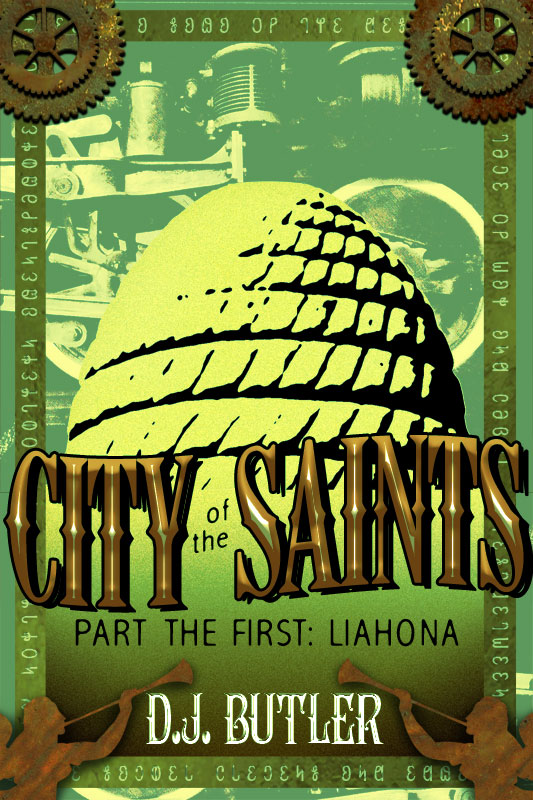Pages on this Site
-
As an Amazon Associate I earn from qualifying purchases.
-
Books by D.J. Butler
Archives
- May 2024
- December 2020
- November 2020
- October 2020
- April 2018
- January 2018
- October 2017
- August 2017
- July 2017
- June 2017
- February 2017
- January 2017
- December 2016
- November 2016
- October 2016
- September 2016
- August 2016
- July 2016
- June 2016
- May 2016
- April 2016
- March 2016
- February 2016
- January 2016
- December 2015
- November 2015
- October 2015
- September 2015
- August 2015
- July 2015
- June 2015
- May 2015
- April 2015
- March 2015
- February 2015
- January 2015
- December 2014
- November 2014
- October 2014
- September 2014
- August 2014
- July 2014
- June 2014
- May 2014
- April 2014
- March 2014
- February 2014
- November 2013
- October 2013
- September 2013
- August 2013
- February 2013
- January 2013
- December 2012
- November 2012
- October 2012
- September 2012
- August 2012
- July 2012
- June 2012
- May 2012
- April 2012
- March 2012
- February 2012
- January 2012
- December 2011
- November 2011
- October 2011
- September 2011
- August 2011
- July 2011
- June 2011
- May 2011
- April 2011
- March 2011
Enough Blood for What?
“Is this enough blood?”
Sa-Nyarlat, born Senwosret, high priest of the ancient complex of Huut-Nyarlat, gazed down from the height of the valley temple. Once, the plains behind him and across the river’s gorge had been lush and wet with rain. There had been no valley temple then, and no need for one. Men had ridden freely on roads that cut through meadows and forests to bring them to the temple overlooking the river. Sa-Nyarlat knew, for he had seen it, lying at night in the god’s heka-barge and breathing in the durhang fumes.
There had been sacrifices, yes. And the sacrifices had been effective. Blood had whet the god’s appetite, and his saliva had watered the plains and raised the emmer, the einkorn, the barley, and the sheum that had given life to tens of thousands.
Now, below the gates of the valley temple, angry men took each other’s lives, in tens of thousands. The incense-stink of hot blood filled Sa-Nyarlat’s head with giddy delight. Almost, he had visions on the spot.
When the new gods had come, the plains had dried up. Other sanctuaries to the god had been burned but not sacked, their treasures left to rod and tarnish as cursed. The sands had come and covered the land. The roads had been lost, and the river had become the road. Then the valley temple had become necessary, a gate at the river of the level that opened into a passage between long sandstone walls leading up to the temple at the bluff behind it.
The valley temple had become necessary, and the deception. Sa-Nyarlat, who rejoiced in a name bearing his god’s blessing and the glorious titles Helmsman of the God’s Black Barge, Feeder at His Father’s Teat, and Lector of the Black Book, passed before the world as the humbler, poorer Senwosret, Keeper of Secrets of Sebek the Crocodile.
It was Sebek’s image that adorned the valley temple, in two immense statues flanking the valley temple’s gates, and in plaster-and-paint murals within it. To a careful observer, an eye learned in the ancient signs, the statues and murals would have revealed something else: a Sebek hexed and impotent, a puppet, and behind him, a true, ancient, and hungry power.
But there were few such eyes that might see the statues and murals, and fewer still that were not themselves adepts of the temple. Most of the traffic through the valley temple, up the long passage and into the Forecourt, consisted of supplicants of the crocodile, and they had no idea who really heard their prayers.
Heard them and laughed.
Even of the temple’s staff, the large majority did not know whom they truly served. Even Pa-Ankhi, Captain of the Gate, the burly Asiatic at Sa-Nyarlat’s side.
“Enough blood for what, Pa-Ankhi?”
What Is Steampunk? (Couture)
Check out these amateur street photographs from Edwardian England and France.
Posted in Steampunk
Leave a comment
City of the Saints Historical Note #3
Sam Clemens’s brother Henry did in fact die when the steamboat he was working on, the Pennsylvania, exploded. Sam had dreamed of Henry’s death a month earlier, and these experiences left him with an abiding curiosity about psychic phenomena and the other side: he was a member of the Society for Psychical Research. He was also curious about technological advancements, becoming a friend of the inventor Nikola Tesla and patenting three inventions himself.
In real life, like Richard Burton, Sam Clemens traveled to Salt Lake City and met Brigham Young, writing about the experience in his book Roughing It. His most famous comment on the Mormons he met, though, is probably this one, about polygamy:
“With the gushing self-sufficiency of youth I was feverish to plunge in headlong and achieve a great reform here – until I saw the Mormon women. Then I was touched. My heart was wiser than my head. It warmed toward these poor, ungainly and pathetically ‘homely’ creatures, and as I turned to hide the generous moisture in my eyes, I said, ‘No – the man that marries one of them has done an act of Christian charity which entitles him to the kindly applause of mankind, not their harsh censure – and the man that marries sixty of them has done a deed of open-handed generosity so sublime that the nations should stand uncovered in his presence and worship in silence.'”
What the Consequences Really Are
“I did not intend any of this.”
Jacob Bar Azazel looked up at his father. Jacob was as small as any of the children of men, wiry and strong but little. His father, though with sorcerous operations he had reformed his body, had kept his original Heaven-given stature. He had been a Bearer of the Word, and he still towered over his son, his goat-like legs and bat wings casting a shadow that covered the entire platform at the top of Ainok’s central Tower.
Azazel, first of the Princes of Ainok, looked out over his City of the Free, and his son turned and followed his gaze.
The city was watered and sluiced by its great canals. They brought bright clean water over sparkling stones from the Rivers of Eden in an immense spiral that touched the very middle of Ainok. The water made a single twist around the Grand Plaza in the city’s center and then spun back out again, a second spiral within the first, that carried the city’s filth out and away, to the foul swampy lake to its south.
The canals flowed through broad plazas and along wide boulevards. Every building in Ainok was squarely framed of dark woods and white stone, and everything sparkled. Now, as the first burning stink of the trails of the falling Bearers of the Sword reached Jacob’s nostrils, the Free People fled. In all their sizes, they jammed the city’s gates and streets, trampling each other and staining the streets red.
“They came in tents, at first,” Azazel continued. “They had heard of my rebellion, and though I raised no flag, they came to me anyway. I was their flag. They wanted to be free.” He turned and looked at his son, and his eyes were warm. “Everyone wants to be free. Not everyone understands the price.”
“What’s the price, papa?” Jacob asked. The top of the Tower felt intimate, warm, and safe, though the wrath of Heaven fell from the skies all around them and his people massacred itself in the streets below. Everything but the platform was remote and unreal.
Azazel turned again and looked down at the city. “When you are free,” he rumbled, his voice like a lion’s warning growl, “you must bear all the consequences of your actions alone.”
Jacob considered this. “What do you mean?”
His father sighed. “I mean that the city of tents became unlivable. We walked in our own excrement, we ate flies and breathed their eggs, and I could not sleep for the sounds of rutting and murder about me at all times.”
“Did you stay because of me?”
Azazel laughed and knelt. Standing at his father’s knee and under his wings was as good as being inside a building. Jacob grinned as his father gently mussed his hair. “I would have,” the Prince of the Free agreed. “But you did not exist then. I had not even met your mother.”
Jacob nodded, eager to hear the story though he didn’t understand it.
“I built this city.” Azazel stood again, his heavy hoofs clicking loudly on the white flagstones that paved the Tower’s platform. He stretched an enormous arm to point as he spoke. “I barred access to this plain while I worked, and I began by flooding it to clean it of the filth that was here. I dug the canals myself. I marked out the Grand Plaza and the Palace, but the first building I raised was this Tower, and here I finally planted my banner. And then I opened the roads again.”
“And they came.”
Azazel nodded solemnly. “They came. They gathered in the Plaza and they heard my rules, and they agreed to them. We would be rebels, but we would rebel together, and our consequences would be shared.”
“And now?”
Azazel looked to the horizon. Bearers of the Sword strode across fruited fields, igniting them with their fiery white touch. Jacob trembled to look at the vengeful angels, faces entirely hidden behind plate-like visors and tree-sized swords dripping liquid fire on the ground, but his father looked calm. Resolved.
“Now,” Azazel said slowly, “I wonder if I have taken full enough account of what the consequences really are.”
City of the Saints Historical Note #2
Edgar Allan Poe is the father of both detective stories and weird fiction. He also dabbled in cryptography. In the real world, he died in 1849 in Baltimore. He died strangely: delirious, not wearing his own clothes, and muttering about someone named “Reynolds.” His end has never been satisfactorily explained, and theories include sickness, madness, intoxication, and even a rough kind of electoral fraud called “cooping,” in which unwilling voters were forced multiple times through the booths, and beaten, or even killed, if they failed to cooperate.
Eliza R. Snow was almost certainly not to blame.
City of the Saints Historical Note #1
I stole my title from one of my protagonists.
In real life in 1860, Captain Richard Burton, East India Company man, linguist, Nile explorer, swordsman, falconer, and erstwhile ersatz hajji (ahem), traveled to Salt Lake City. He wrote a book about his journey, called The City of the Saints. Burton was a clear-eyed and unshockable observer, and this book is well worth reading even today. Here’s my favorite bit, from his description of meeting Brigham Young:
Altogether the Prophet’s appearance was that of a gentleman farmer of New England — in fact such as he is: his father was an agriculturist and revolutionary soldier, who settled “down East.” He is a well-preserved man; a fact which some attribute to his habit of sleeping, as Citizen Proudhon so strongly advises, in solitude.
Burton’s real-world journey is the seed from which this gonzo action steampunk fantasy sprouted.
Reality TV Pollutes Our Culture
This book deal just got announced:
The younger sisters on E!’s hit reality show Keeping Up with The Kardashians Kendall Jenner and Kylie Jenner’s dystopian novel that takes place in a world none of us have ever seen and will follow two sisters on a journey filled with terror, mystery, drama and love, to Charles Suitt of Karen Hunter, for publication in Summer 2013, by Mel Berger of William Morris Endeavor (NA).
<RANT>
If you buy this book, I won’t put a flaming sack of dog feces on your doorstep. Nope. I’ll put one in your refrigerator. And I’ll put another in your bed.
I understand that publishers invest money in any author when they contract her or him to write a book, and it’s a risk, and the publishers are incentivized to go for the sure thing. But this is a debasement and uglification of our literary culture. Charles Suitt of Karen Hunter could have rewarded many kinds of virtue in the world of aspiring writers, and he chose instead to throw more money at reality TV stars.
You vote with your money. Vote against this crap.
</END RANT>
Liahona!
Today I published Liahona (City of the Saints, part the first). Watch for the next three parts over the summer, and then a softcover book in the fall.

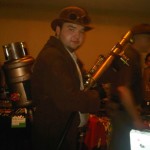
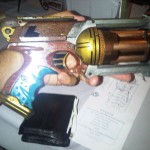
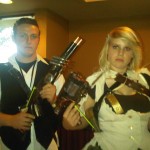
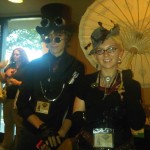
 Follow
Follow
